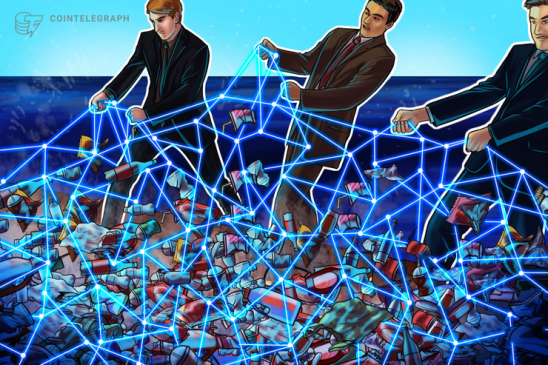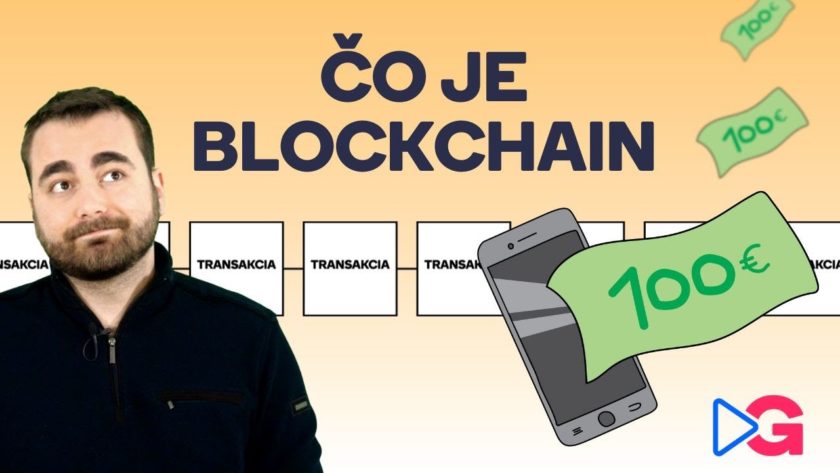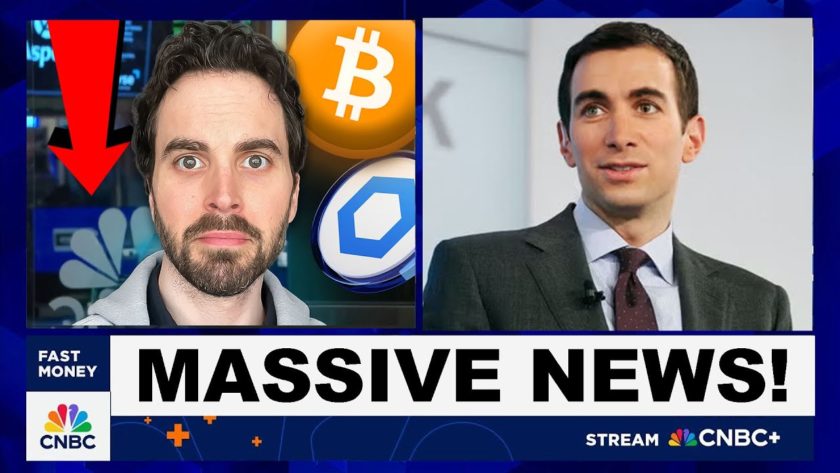In September, Cointelegraph reported on a Dutch company said to have created the world’s first collection of recycled fabrics made from ocean plastics and whose provenance can be traced via blockchain.The premise is that socially minded consumers want assurance that they are really wearing recycled materials fished out from oceans and coastal areas.
The firm, Waste2Wear, deserves applause, but it is unlikely to make a dent in the world’s plastic problem.
The problem is volume. More than 8 million tons of plastic ends up in the planet’s oceans every year. That’s 2.1 pounds of ocean waste for every person on the planet. Of that, 90% comes from just 10 river systems, eight of them are in Asia — the Yangtze, Indus, Yellow, Hai He, Ganges, Pearl, Amur and Mekong — as well as the Nile and the Niger in Africa. Most plastic ocean waste, in other words, is dispersed by the world’s poorer countries.
Blockchain technology may still have an important role to play in alleviating the planet’s ocean waste problems.
In June, the Plastic Bank, a startup that collects and recycles ocean plastic, opened its ninth plastic recycling center in Indonesia in collaboration with American cleaning supplies company SC Johnson. Each center can handle up to 100 metric tons of plastic a year. When local waste collectors bring plastic to the centers, they are issued digital tokens via smart contracts accessed from their mobile devices. All transactions are tracked on Hyperledger Fabric, a permissioned, open-source blockchain platform. The Plastic Bank then sells its recycled plastic flakes or pellets to consumer packaged goods manufacturers as “social plastic” for a premium.
In early December, Brooklyn blockchain enterprise Bounties Network tested cryptocurrency-based incentives in the Philippines, the world’s third-largest emitter of ocean plastic after China and Indonesia. During a coastal cleanup of the Manila Bay, local fishers collected 3 tons of trash — most of it plastic — and were paid for their labor with an Ethereum-based ERC-20 token. Coins.ph, a partner on the ground, helped to convert the crypto into fiat currency.
These efforts appear to offer an ingenious solution to two seemingly intractable problems: poverty in the developing world and ocean plastic waste. The Plastic Bank found that the digital wallets it uses were effective in guaranteeing security against theft for collectors — the fishers living on just a few dollars a day. In some cases, it even provided collectors with enough collateral to take out bank loans. The blockchain trial also facilitates the claims of corporate clients who want to improve their sustainability and corporate social responsibility scores.
Marshall Kirkpatrick, vice president of influencer relations at social media marketing company Sprinklr commented on Twitter:
“Super interesting: @PlasticBank pays poor people above-market rates to collect plastic waste, then recycles it, certifies it as recovered Social Plastic using IBM’s blockchain, and then sells it to manufacturers at a premium. Super smart!”
According to Waste2Wear, which began collecting its plastic waste from a small island off Shanghai, consumers have been clamoring for the recycled materials used in its fabrics to be traceable. This is where Waste2Wear thinks a blockchain platform can help:
“The blockchain documents and records the journey of plastic waste, step-by-step, to become a finished textile product. This allows Waste2Wear to track recycled materials all the way back to their source, from the fishermen and pickers who collected the plastic up to the final product, and all steps in between. It enables the company to provide their customers with complete transparency, leaving no doubt that all fabrics and textile products are made out of post-consumer plastic waste collected from oceans, and saved from ending up on landfill.”
Michael Peshkam, executive in residence at European business school INSEAD, believes the Plastic Bank has developed a strong model. “Several more [startups] like it are coming on, too, all of them using blockchain technology,” he told Cointelegraph. Empower, a Norwegian startup, uses blockchain tokens to spur donation-based recycling. Blockchain technology, Peshkam argued, is valued for its ability to provide a trusted and open platform for moving data and value. He believes it can be pivotal in the struggle against plastic waste.
There remains the question of scale, however. Plastic Bank co-founder Shaun Frankson said the company doesn’t want to just do something small that sounds good. Cleaning a beach or wearing clothes made of recycled plastic is great, but it won’t erase the Great Pacific garbage patch. Can the startup really find enough buyers for its recycled plastic — manufacturers who are willing to pay a premium for “social plastic” — to make a dent in these global problems?
“I’m not sure if it’s scalable or could be applied globally,” Peshkam commented. “It really requires a global effort, in the emerging countries but also the developing world. One organization can’t do it on its own, and citizens have to be part of the solution.”
Momentum in this direction may be building among governments and corporations. Nestle, Pepsi, Walmart and Marks & Spencer are introducing products with reclaimed social plastics. Earlier this year, SC Johnson launched the industry’s first product that uses 100% recycled ocean plastic as part of its Windex brand. The Coca-Cola Company announced a goal to have 50% recycled content in its packaging by 2030, and the government of Indonesia recently committed to reducing 70% of its marine debris by 2025.
While companies around the world are finally moving toward sustainable practices and are more often being held accountable for contributing to humanity’s era of pollution, undoing the existing damage is more a matter of effort against the sheer quantity of waste. Now, with blockchain systems gaining traction across industries, getting personally involved with cleaning up plastic waste and other sustainable initiatives is becoming a real option for the concerned, everyday citizen. However, only time will tell how big a role blockchain will play in cleaning up plastic waste.




